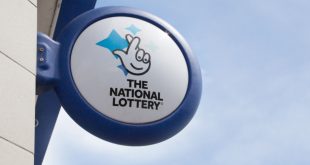 Thames Valley Police has moved to highlight its concerns about fake lottery scams and has asked the public to remain vigilant after an elderly couple were defrauded of more than £25,000.
Thames Valley Police has moved to highlight its concerns about fake lottery scams and has asked the public to remain vigilant after an elderly couple were defrauded of more than £25,000.
Police are warning people not to respond to any communications claiming they have won a lottery, sweepstake or any other prize draw, and to remain vigilant against fraudsters.
The reminder is being issued after a recent incident involving a 76-year-old and 77-year-old couple from Chesham, who were conned into believing they had won an international lottery. The couple were led to believe they would receive £4.2min return for paying a fee for the winnings to be released.
Following written and telephone correspondence from fraudsters responsible for the scam, the couple made several payments between 23 September and 2 October 2015.
Investigating officer PC Carl Ludlam, based at Amersham Police Station, said: “This is a very unfortunate incident which has led to the couple being defrauded of a substantial amount of money. These types of scams have been emerging for some time and we would like to warn members of the public that they are still happening, and this recent incident is proof that people are still being misled into believing them to be authentic.
“I would like to reassure the public that this latest incident is being investigated thoroughly and warn them to remain vigilant against these types of scams.”
In 2014, there were 60 lottery-related scams reported to Thames Valley Police. The Force continues to work with the National Fraud Intelligence Bureau and UK reporting service Action Fraud on the issues of fraud, scams and cyber crime.
Prevention advice
Action Fraud has issued the following advice to protect against lottery fraud:
- Never respond to any communication claiming you have won money in an international lottery, sweepstake or other prize draw. If you haven’t entered a lottery, you can’t have won it.
- Official lotteries in other countries operate in much the same way as the UK’s National Lotto. No known official lotteries contact people in this way to tell them of their win.
- There are no known official lottery operators who ask for fees to collect winnings. Any request for a fee payment is a good indication that someone is trying to defraud you.
- Never, ever disclose your bank details or pay fees in advance.
- If they’ve provided an email address to respond to, be very suspicious of addresses such as @hotmail.com or @yahoo.com or numbers beginning with 07 because these are free to get hold of.
- Genuine lotteries thrive on publicity. If they ask you to keep your win a secret it’s likely to be a fraud.
- Many fraudulent lotteries have bad spelling and grammar – see this as a warning that fraudsters are at work.









